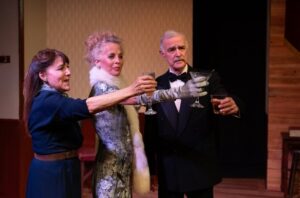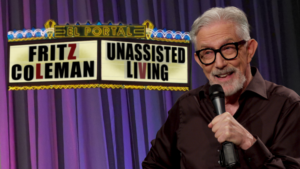It is no surprise that Giuseppe Verdi revered Shakespeare; one master dramatist recognizing that genius in another. The young Verdi had written an operatic adaptation of MACBETH but stayed away from trying his hand at another Shakespeare play until he astonished the musical world with OTELLO at the age of 74.
OTELLO is a crowning achievement in an extraordinary career in which Verdi had long been considered Opera’s premiere composer. His only rival was Richard Wagner. The score showed no sign of age or old-fashioned idioms and clearly displayed the breadth of his musical development. The starkly delineated arias and recitatives he perfected in his youth were replaced by a truly integrated mode of composition featuring the orchestra as an active participant.
LA Opera’s orchestra for this production was led by the always impeccably musical James Colon, who truly conjured the ferocity of an ocean tempest in the crashing chords that begin the opera. I’ve never felt such a visceral connection to the violence of that storm. Little need to report that he and the orchestra just as ably charted every emotional and dramatic peak through the three hours plus of the opera’s running time.
Otello is one of the most daunting tenor roles in the Italian repertoire. It commences with a famously exposed entrance and rarely lets up, demanding tremendous vocal stamina and near Wagnerian power. But this is no simple shoutfest. True lyricism is also required. Luckily, Russell Thomas is a wonderfully expressive and intelligent singer who truly inhabits the role, never shying away from the opera’s histrionic demands. His voice is smaller than the norm, but he compels you to lean forward and listen as Otello journeys from triumph to the devastating tragedy caused by his fatal jealousy. One can only imagine how much more effective he might be with better direction.
The below-decks shipboard setting for the John Cox production worked nominally better in its 2008 introduction when it seemed to mirror Otello’s constantly shifting mind. In 2023, with less focused direction by Joel Ivany, the curved wooden flooring seems less a choice and more like the cast has been forced to improvise the opera on an abandoned BILLY BUDD set. Ivany’s direction feels mostly stilted, like Otello and Desdemona’s (Rachel Willis-Sorensen) rapturous love duet which is clumsily staged in a fashion that ignores Verdi’s musical cues and robs us of any erotic chemistry between the couple. Wrong-headed also are the moments when Otello sinks to the floor, lying prone while singing. The choice might work in a smaller house, but not a huge venue like the Chandler.
As with any production of the play or the opera, the dramatic motor is in the hands of Iago. Igor Golovatenko has a commanding presence as the villain, but he takes his time insinuating himself. This Iago might believably make different choices. But once he pounces, it is clear that he will not stop until he has laid waste to all he feels have wronged him. Golovatenko’s voice is authoritative, but more refined than blustery which he uses to great effect in the “Credo.” And his stirring “Si pel ciel” with Thomas is a truly thrilling vocal and dramatic highlight. Willis-Sorensen, in her LA Opera debut, has a plush and powerful sound that she unfurls with consummate ease. Robbed of the early connection with Otello, her best moments are her solo musings in the final scene and a heartbreaking “Willow Song.”
The entire supporting cast is vocally resplendent with Anthony Ciaramitaro as a youthfully impetuous Cassio, Sarah Saturnino as a determined Emilia, Anthony Leon as an ambitious Roderigo, and Morris Robinson steals all the low-voice thunder as Lodovico. The chorus, too, is polished and exciting in each of their scenes.
Dorothy Chandler Pavilion May 13 – June 4, 2023 laopera.org









